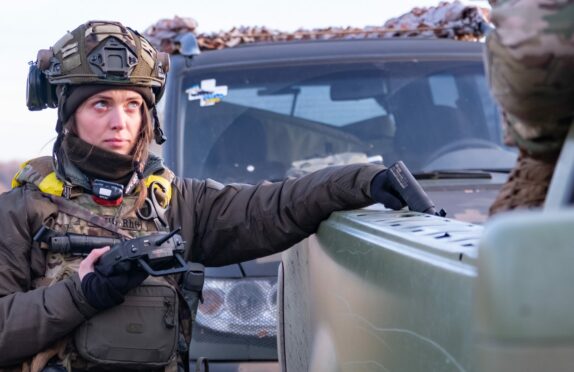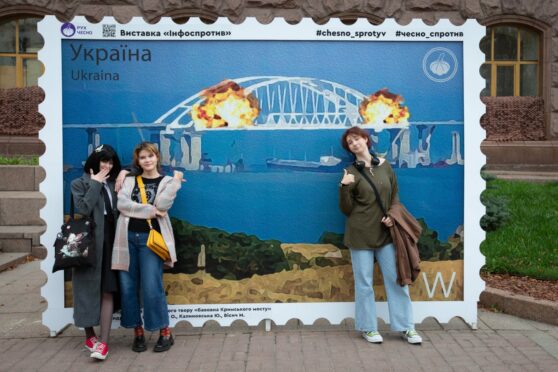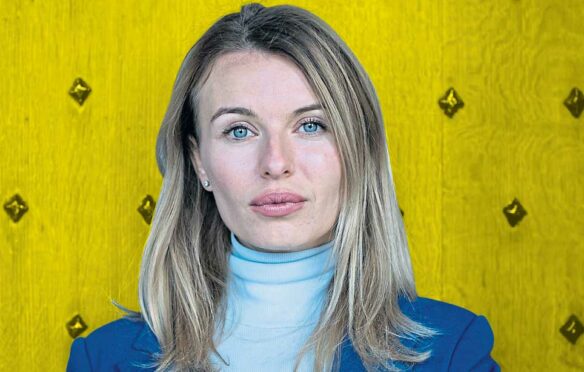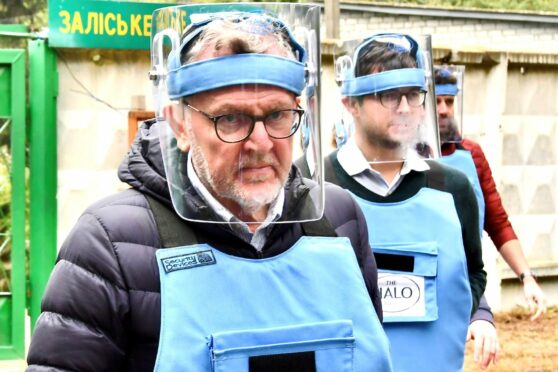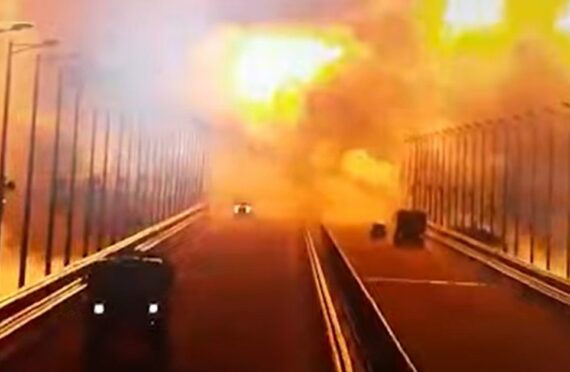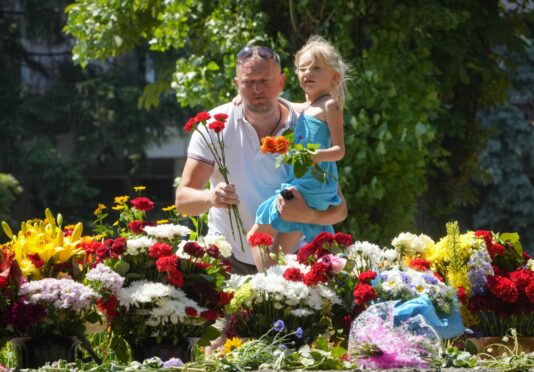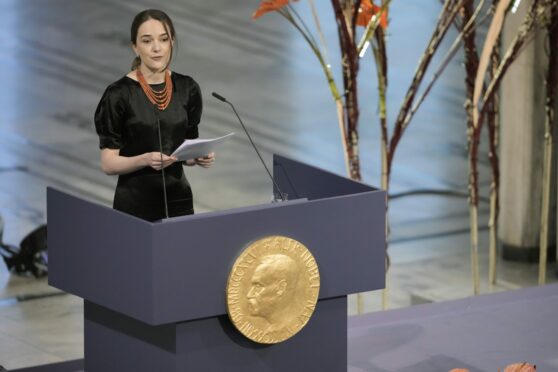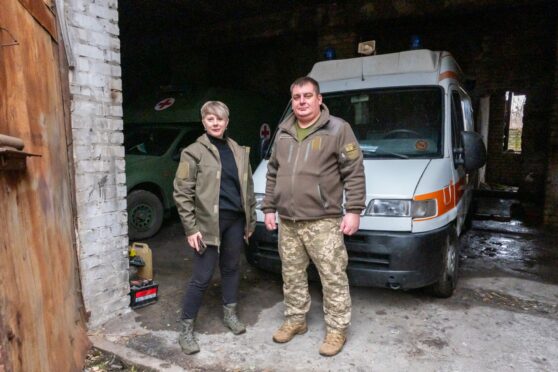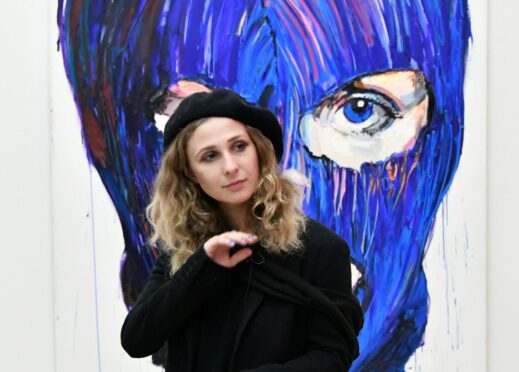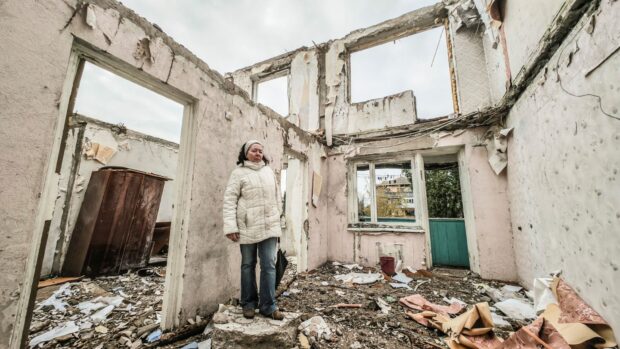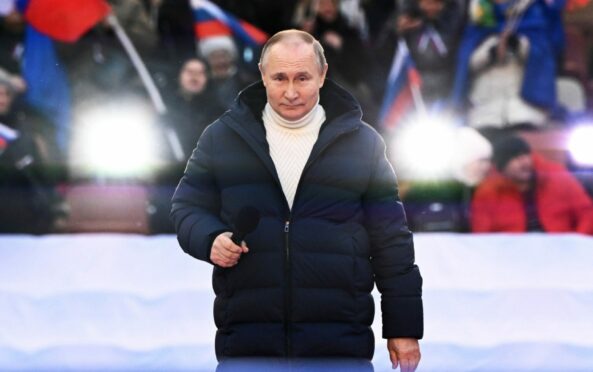
Watching the images of flattened cities and desperate refugees, many of us have wondered: “Why don’t they just get rid of him?”.
The removal of Vladimir Putin is the prayer of many, but is it likely? Could the fall of this Russian president become the only silver lining in this bloody war?
Well, let’s put one possibility to rest. Putin does not plan to be another Indira Gandhi, the former Indian leader assassinated by her bodyguards in 1984. Putin’s personal guards are loyal, trusted and constantly monitored and assessed by the FSO, the secretive Federal Protection Service. The FSO not only provides the men who protect the “Body”, as they call him, from potential attackers, they also provide his cooks – and his food-tasters.
I have entered the part of the Kremlin where Putin works many times and you could hardly smuggle in a paper clip. Before entering a metal detector, everything apart from the clothes you stand in is confiscated. So, if assassination is unlikely, what about the chances of Putin being overthrown by a coup, or forced out by disorder in the streets?
Neither, at present at least, can be said to be likely. The longer the war rages on, however, the higher the chances become.
Let’s look at the circles of power around Putin to see whether any of them might have the means or motivation to overthrow a president.
The Strongmen
For three years in the early part of Putin’s rule I worked as a media consultant to Dmitry Peskov, his spokesman. Nowadays he is also deputy chief of staff with daily access to the president.
Fifteen years ago Peskov came across as genial and “Western”, obsessed with having the latest iPhone and MacBook. Since then I have watched him turn into a clone of his boss, echoing his tough-guy language and defending every step as Putin dragged Russia into isolation. He may have the president’s ear but I very much doubt that he would even dream of contradicting him, far less orchestrating a move to oust him.
In the early days Putin had a wide range of advisers, and listened to them. Nowadays his circle has shrunk to a coterie of men, mainly from the law enforcement agencies. These are the so-called siloviki – the “strongmen” who run the FSB (the security service formerly known as the KGB), the National Guard, the foreign intelligence service, the armed forces and Security Council.
Since it is these men who advised Putin to go to war against Ukraine (or at the very least suggested it was feasible), they are unlikely to overthrow him.
The Political Elite
Beyond the inner circle are the hundreds of men and women who form Russia’s political elite – members of parliament, government ministers, members of the Presidential Administration, and those who run the economy and foreign affairs. The parliament is notoriously docile, and packed with people chosen for their loyalty. They rubber-stamp Putin’s policies (and in some cases egg him on to be ever more hard-line). Their main interest is using their positions to rake in bribes. All of them own property far in excess of their nominal salaries.
There are certainly, though, many officials in the wider political elite who think the war is a disaster. Teachers and students at Russia’s diplomatic academy even signed a letter of protest. Putin’s first foreign minister, Igor Ivanov, publicly criticised the war. Many journalists are appalled by what is going on. But few are as brave as Marina Ovsyannikova, the news producer who disrupted the main evening news last Monday with a home-made sign denouncing the war. Her sensational protest will have sent shockwaves through the Kremlin. Putin and his acolytes must know that she potentially represents a large number of journalists who – for the moment – are too afraid to voice their opinions but who could at some point get together and, in theory, destroy the entire propaganda show that makes his invasion palatable to the Russian public.
The Oligarchs
Russia’s billionaire businessmen have been sanctioned by the West for their closeness to Putin. But none of them were consulted before the invasion of Ukraine. Many of them will be secretly appalled by the prospect of Russia being isolated from the rest of the world. Their businesses operate in the global economy, and the last thing they want is to be trapped inside a kind of vast North Korea. There is no sign as yet of them approaching Putin for a private talk. But if they were to get together and decide to put joint pressure on Putin to stop the war – and thus end the sanctions – they could wield considerable influence. They could also end up in jail, of course.
The Middle Classes
Russia many years ago shed its old image as a drab, unfashionable, grey place. Now it is a huge market-place for Western goods, and Moscow is glitzier than most cities in the West.
Or rather, it was until almost every Western brand closed its stores. Now you can’t even drink Coca-Cola – for the first time since about 1980. Thanks to the new sanctions, both those who sell the goods and those who love to buy them have reason to hate Putin for destroying their lifestyles. Russia’s middle classes have grown used to the good life. Not any more.
These people also tend to be savvy about the West and follow news on the internet rather than on Russian TV. So the middle classes are certainly full of pent-up resentment at the disaster Putin’s war has brought upon their heads. But how can they express it? All anti-war protests have been swiftly quashed by riot police.
The People
For the moment, millions of Russians – perhaps half of the population – are fed the propaganda on state television and actually believe that Putin’s “special military operation” was necessary to rid Ukraine of its “neo-Nazi” leaders and to prevent a US-backed attack on Russia. Many Ukrainians report their own relatives in Russia do not believe them when they describe the destruction.
But what will happen when the truth seeps out? The backlash could be huge.
The Army
And what about the military? There are rumours that some generals may already believe they were sent in to an unwinnable war, based on dodgy intelligence and a misreading of how the Ukrainians would resist. The death in the conflict of four Russian generals will have fuelled doubts. There may be some among the top brass who decide they’ve had enough but enough to conspire to oust Putin? That seems unlikely.
The Hope
The vast majority of Russians never saw Ukrainians as any kind of enemy until they were suddenly pitched into war. If enough Russians decide they will no longer be lied to, the mood could change. For Putin to be overthrown, the sense of discontent must reach some kind of tipping point, at which protesters might feel emboldened into the streets. This might persuade the political classes to take action.
For now that tipping point seems a distant prospect but as Ovsyannikova said: “Go out and protest. Don’t be afraid. They can’t imprison us all!”
Angus Roxburgh is a former BBC Moscow correspondent and author of The Strongman: Vladimir Putin And The Struggle For Russia

Enjoy the convenience of having The Sunday Post delivered as a digital ePaper straight to your smartphone, tablet or computer.
Subscribe for only £5.49 a month and enjoy all the benefits of the printed paper as a digital replica.
Subscribe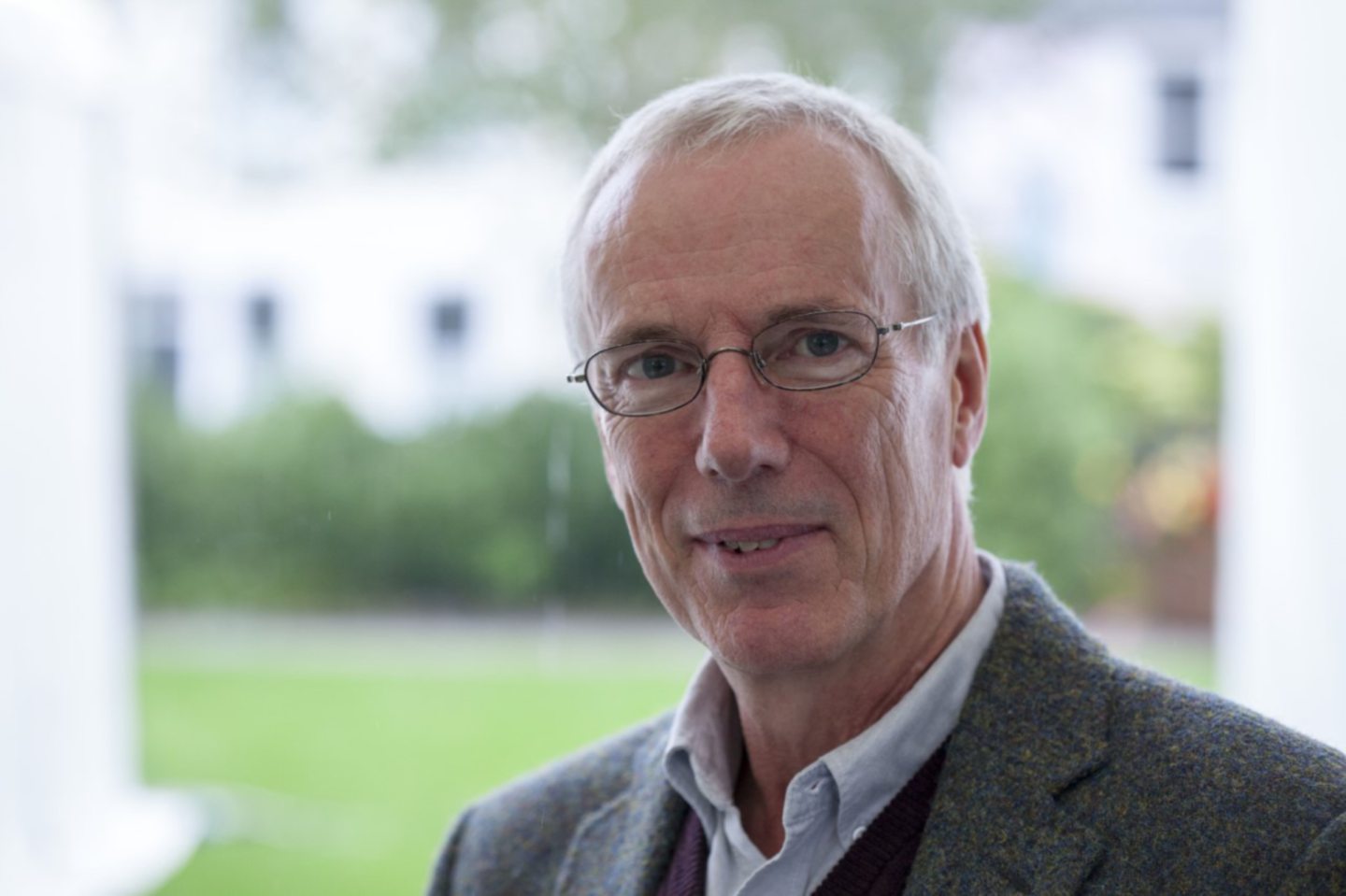 © SYSTEM
© SYSTEM